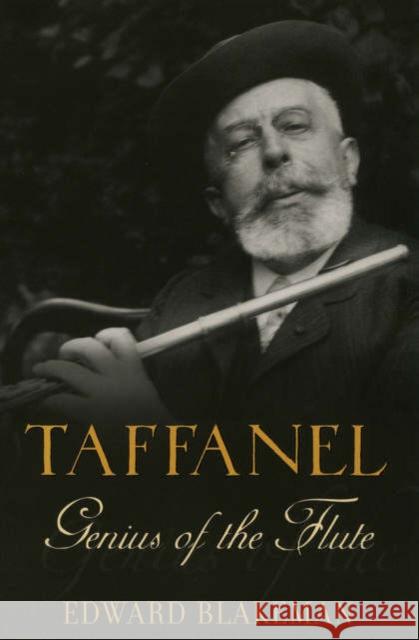Taffanel: Genius of the Flute » książka
topmenu
Taffanel: Genius of the Flute
ISBN-13: 9780195170986 / Angielski / Twarda / 2005 / 352 str.
Taffanel: Genius of the Flute
ISBN-13: 9780195170986 / Angielski / Twarda / 2005 / 352 str.
cena 502,05
(netto: 478,14 VAT: 5%)
Najniższa cena z 30 dni: 459,67
(netto: 478,14 VAT: 5%)
Najniższa cena z 30 dni: 459,67
Termin realizacji zamówienia:
ok. 16-18 dni roboczych.
ok. 16-18 dni roboczych.
Darmowa dostawa!
The French flute player and conductor Paul Taffanel (1844-1908) was an extraordinary virtuoso and a major figure in fin-de-siecle Parisian musical life. Based on a treasure trove of private documents of Taffanel's previously unpublished letters and papers, Taffanel: Genius of the Flute recounts the rich story of his multi-faceted career as a player, conductor, composer, teacher, and leader of musical organizations.
As a player, Taffanel had a rare vision of the flute as a serious, expressive instrument and his name sits at the center of the extraordinary lineage of flutists. At a crucial moment in the flute's history -- after it had been completely remodeled by Theobald Boehm -- Taffanel had far-ranging influence, creating the modern French school of playing which has since been widely adopted throughout the world, and re-establishing the instrument in the mainstream of music. Taffanel was also an inspiring teacher at the Paris Conservatoire, to whom many modern flutists can trace their roots. Taffanel also pioneered a renaissance in playing and composing chamber music for wind instruments. He founded the Societe de musique de chambre pour instruments a vent (Society of Chamber Music for Wind Instruments) in 1879, reviving the wind ensemble music of Mozart and Beethoven, and stimulating the composition of many new works, among them Gounod's Petite symphonie. The ensemble broke the dominance of piano and strings in recital and chamber music and fostered many of the canonic works in that repertoire. Although foremost a flutist and teacher, Taffanel was also an important opera and orchestra conductor, virtually without rival in Paris. From 1890, he served as chief conductor at the Paris Opera and the Society des concerts du Conservatoire (Paris Conservatory Orchestra) - the first time a flutist, rather then a string player, had been appointed to such key positions. At the Opera he was charged with all new productions and gave notable French premieres of various Wagner operas and Verdi's Otello. At the Societe des concerts he championed contemporary French composers, particularly his great friend Saint-Saens, and gave the world premiere of Verdi's Sacred Pieces. Beyond his work as a performer, teacher and conductor, Taffanel was a fluent composer for the flute and wind quintet, a formidable administrator of several musical organizations, and was a major personality in Parisian musical life. Blakeman expertly places Taffanel's story in the rich political and cultural backdrop of the time, evoking Conservatoire intrigues, the Societe des concerts, and Taffanel's relationships with various musicians and major composers. Blakeman details the circumstances surrounding landmark commissions, performances, and repertoire, and weaves the details from Taffanel's correspondence with first-person interviews and flute lore. What emerges is a portrait of an all-round musician who was also a modest and genial man.










